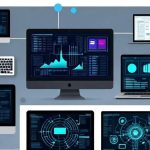Understanding AI for Professionals
AI for Professionals refers to the application of artificial intelligence technologies in various professional fields, enhancing productivity, decision-making, and operational efficiency. As AI continues to evolve, its integration into the workplace has transformed how professionals approach their tasks, enabling smarter solutions and fostering innovation.
This article will explore the significance of AI for Professionals, its fundamental aspects, and practical applications that can be leveraged in daily work environments.
The Importance of AI in the Professional Landscape
The rapid advancement of artificial intelligence has not only reshaped industries but has also created new opportunities for professionals across various sectors. By automating repetitive tasks, providing data-driven insights, and enhancing communication, AI is becoming an essential tool for individuals aiming to stay competitive in their fields.
For instance, in the healthcare industry, AI algorithms analyze patient data to assist doctors in diagnosing diseases more accurately. In marketing, AI tools analyze consumer behavior, allowing businesses to tailor their strategies effectively.
Key Components of AI for Professionals
To fully grasp the concept of AI for Professionals, it is essential to understand its core components:
- Machine Learning: A subset of AI that enables systems to learn from data and improve over time without explicit programming.
- Natural Language Processing (NLP): This allows machines to understand and respond to human language, making it invaluable for customer service and support.
- Computer Vision: This technology enables machines to interpret and make decisions based on visual data, useful in fields like manufacturing and security.
- Robotics: The integration of AI into robotics enhances automation in various industries, from manufacturing to healthcare.
Real-World Applications of AI for Professionals
AI for Professionals encompasses a wide range of applications across various sectors. Here are some notable examples:
1. AI in Healthcare
In healthcare, AI systems assist in diagnostics, predicting patient outcomes, and personalizing treatment plans. For example, IBM Watson Health analyzes vast amounts of medical literature and patient data to provide evidence-based treatment recommendations.
2. AI in Finance
Financial institutions use AI for fraud detection, risk management, and personalized banking services. Algorithms can analyze transactions in real-time to identify suspicious activities, reducing the risk of fraud.
3. AI in Marketing
Marketing professionals leverage AI for data analysis and customer segmentation. AI tools can predict customer preferences and behaviors, allowing businesses to create targeted marketing campaigns that resonate with their audience.
4. AI in Human Resources
AI can streamline recruitment processes by analyzing resumes and predicting candidate success. Companies like HireVue use AI to assess video interviews, helping HR professionals make informed hiring decisions.
Practical Tips for Integrating AI in Your Professional Life
For professionals looking to harness the power of AI, here are some actionable steps:
- Educate Yourself: Invest time in learning about AI tools relevant to your industry. Online courses, webinars, and workshops are excellent resources.
- Experiment with AI Tools: Start with user-friendly AI applications. Tools like Grammarly for writing or HubSpot for marketing can enhance your productivity.
- Collaborate with AI Experts: Partner with data scientists or AI specialists in your organization to understand how AI can be implemented in your workflow.
- Stay Updated: AI is a rapidly evolving field. Follow relevant blogs, podcasts, and news to keep abreast of the latest developments.
Related Concepts in AI for Professionals
Understanding AI for Professionals also involves exploring related concepts that contribute to its effectiveness:
- Data Analytics: The process of examining data sets to draw conclusions, which is crucial for informing AI algorithms.
- Cloud Computing: Facilitates the storage and processing of large data sets necessary for AI applications.
- Cybersecurity: As AI tools are integrated into business operations, ensuring data security becomes paramount.
Conclusion: Embracing AI for a Better Tomorrow
AI for Professionals is not just a trend; it is a pathway to enhancing efficiency, creativity, and decision-making in the workplace. By understanding its applications and integrating AI tools into daily operations, professionals can unlock new levels of productivity and innovation.
As you reflect on your own career, think about how you can incorporate AI into your workflow, whether by adopting new tools, collaborating with experts, or staying informed about industry advancements. The future is bright for professionals willing to embrace AI.









